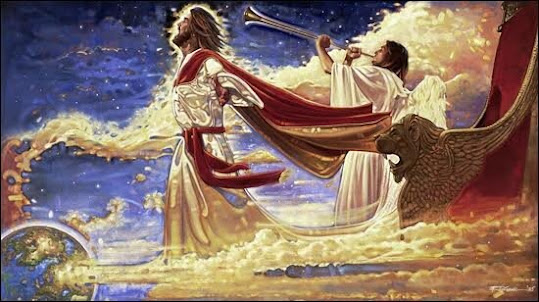Homily for the Christmas Feast of the Holy Family, December 26, 2021. Gospel of St. Luke 2:41-52. Theme: Leaving Bethlehem for Nazareth
It might seem a bit odd that here we are, the day after Christmas, hearing a Gospel story about Jesus already grown into a young boy. It might also seem a bit odd that there is no mention of Bethlehem. Instead, we are told that he is living in a village called Nazareth. And so we might be wondering: Where is the Infant Savior in his manger, heralded by angels and visited by the shepherds? Where did Christmas go?
Well, it might help to know that in Catholic vocabulary, there are two words that both express the meaning of Christmas, and those two words are Bethlehem and Nazareth. Both of them proclaim the glad tidings of great joy that the long-awaited Savior who is both Christ and Lord has come among us! But each one does so in its own way and from its own perspective. Bethlehem tells us the story of God being born on planet Earth, while Nazareth shows us what God-becoming-flesh looked like as the Christmas story played itself out for 30 years in the everyday life of the Holy Family. They are really just two sides of the same Christmas coin.
Now, as much as I love the sights and sounds and story of Christmas, I relate much more to Jesus in Nazareth than Bethlehem. I feel more comfortable and at home in Nazareth because it speaks to me about an ordinary life that is more like my own. There are no heavenly angels proclaiming God’s praise to shepherds in Nazareth. There are no mystical gift-bearing Magi following a miraculous star to Nazareth. Those extraordinary things all belonged to magical Bethlehem, but they are so out of place in ordinary Nazareth.
Nazareth speaks more powerfully to me than Bethlehem about the mystery of God becoming flesh which is the very heart of Christmas. It shows me that when Jesus became man he really emptied himself of his divine power and glory. He wasn’t just acting or pretending to be human. Nazareth means that God went to work and earned a living by the sweat of his brow and not by easy miracles. Nazareth means that God enjoyed meals with family and socializing with friends. Nazareth means that God had to pay taxes to the emperor, deal with bills, and meet with the men of the village to arrange for protection and provisions.
Because Jesus shared in every aspect of life in the Holy Family of Nazareth, our own everyday lives can be spiritually united with his, and become something beautiful for God. This is possible because through Jesus divinity has embraced and participated in our ordinary way of living. By his sharing in our humanity, Christ has sanctified all the little everyday things we have to do, because he had to do them as well. Nazareth assures us that we don't have to do big or astounding things to give God glory in our lives. Like him, we just need to faithfully do whatever our tasks and duties might be, but to do them well and to carry them out mindfully in spiritual union with him.
It’s quite simple to intentionally live our daily lives in union with Jesus. No special words are needed. Every morning before beginning the day, we can simply speak to God from the heart and offer all that we will experience and do in union with all that Jesus experienced and did when he lived on earth. That’s the key to transforming our work, our joys and our struggles, indeed, our very lives into a gift of praise to God. Some people find it helpful to do this by using the words that are prayed at Mass when the Eucharist is elevated: “Through Him, With Him, and In Him”. This short and simple prayer can be our way of easily and quickly summarizing the gift of ourselves and all that we do for the glory of God the Father in union with Jesus every morning. It is also an excellent way of living the meaning of Christmas, of God-becoming flesh and living like us, throughout the year.
Yes, the events of Bethlehem were awesome and we all love hearing and singing about them every year at Christmas, but they were just the preamble to a greater unfolding of the story in Nazareth. It’s the story about a Savior whose ordinary everyday human life makes him truly what we proclaim him to be at Christmas: “Emmanuel”, a God who grew up like each one of us…a God who lived like each one of us…and a God who wants to walk through everyday life with each one of us as Brother, Companion, Savior and Friend.
Bethlehem and Nazareth are two sides
of the one Christmas Coin...
This is Christmas...
It just depends on how we ponder
the Word become flesh
and living among us.




















